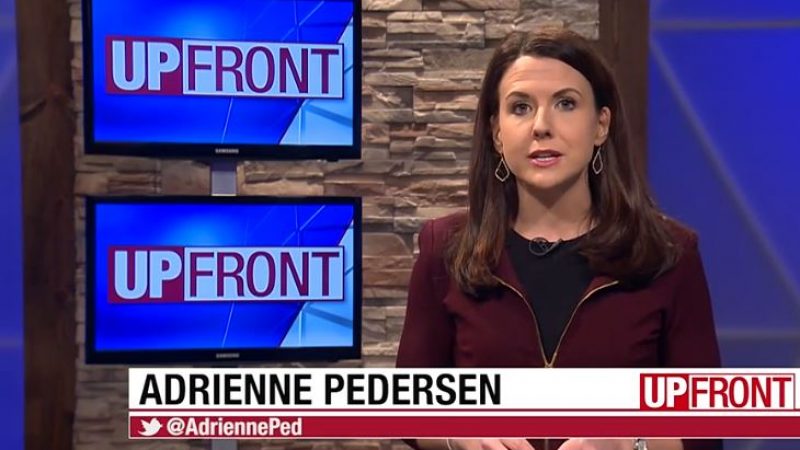U.S. Rep. Gwen Moore, D-Milwaukee, said a de-escalation training provision she has added to a bill on police brutality could help prevent officer-involved deaths. But U.S. Rep. Glenn Grothman, R-Glenbeulah, called the bill a “disaster” that will lead to timid police forces.
The Congressional Black Caucus has introduced the “Justice in Policing Act” following the death of George Floyd in Minneapolis. Floyd died after an officer kneeled on his neck for nearly nine minutes.
“We know that police are trained to shoot, 59 hours of that, another 48 hours on tactical principles, and get only eight hours, eight hours of voluntary training often, on de-escalation,” Moore said in an interview aired Sunday on “UpFront,” produced in partnership with WisPolitics.com.
Moore said de-escalation practices could have helped prevent the 2014 death of Dontre Hamilton, a mentally ill black man shot to death by a Milwaukee police officer during a struggle in a downtown park. The officer had been dispatched to the park for a welfare check of a man sleeping on a bench.
>> WisPolitics is now on the State Affairs network. Get custom keyword notifications, bill tracking and all WisPolitics content. Get the app or access via desktop.
Moore said the bill also would create a national database for uses of excessive force. She said that’s necessary because “bad cops just simply move to another jurisdiction.”
“This is a systemic problem, and this is a lack of accountability that this bill tries to address,” she said.
Grothman took issue with the bill’s proposed reform of “qualified immunity” for police officers. Getting rid of qualified immunity, he said, is “going to make very timid policemen.”
“I don’t want to do anything to penalize the good cops, and this bill would penalize the good cops in a big way. It would be a disaster,” Grothman said.
He also predicted the bill, if passed and signed by the president, would lead to increasing crime rates. He said the police chiefs he has talked to worry it will discourage people from choosing careers in law enforcement.
“They wonder, who is ever going to want to be a cop if this bill is passed?” Grothman said.
Also on the program, Milwaukee Health Commissioner Dr. Jeanette Kowalik said public health officials are concerned about the spread of COVID-19 during the large racial justice demonstrations in many communities.
Kowalik noted the protests have passed the two-week mark, adding cases of coronavirus among the protesters would start to be seen now if transmission has occurred.
She said protesters are exercising their constitutional rights to assembly and free speech, but she urged them to take precautions for COVID-19, including use of masks and hand sanitizer.
See more from the program:
http://www.wisn.com/upfront


